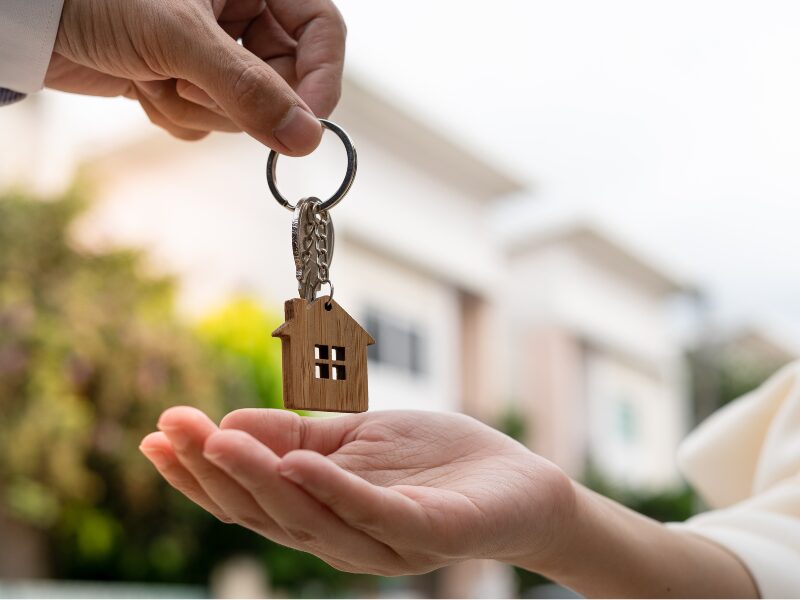Key Takeaways
- Self-employed home loans cater specifically to Australians who earn income through running their own business rather than a regular PAYG salary.
- These loans require specific documentation to verify income and repayment capacity.
- Common types include full doc loans and low doc loans, each with varying requirements.
- While traditional home loans require payslips and tax returns, full document self-employed home loans can require financials, notice of assessment, savings, credit card, and bank statements (for full-doc) and BAS or an accountant letters (for low-doc).
- Sole traders and small business owners can successfully apply for home loans with the right preparation.
- Profitable financials and a clean credit history improves the chances of loan approval. However, there are plenty of great options for those with less-than-ideal credit, too.
- Working with an experienced mortgage broker who specialises in self-employed home loans can help you better understand and navigate self-employed home loans.
- Dark Horse Financial specialises in assisting self-employed Australians to find the right home loan options.
Owning a home is a dream for many Australians, including the growing number of people who run their own businesses or work for themselves. However, for the self-employed, the journey to home ownership can come with a few extra hurdles. Traditional lending criteria often cater to salaried employees, making it more challenging for small business owners, sole traders, freelancers, and contractors to get approved for a mortgage.
In this article, we’ll explore what self-employed home loans are in Australia, how they differ from standard home loans, the types available, the documentation required, and how self-employed Australians can improve their chances of approval.
What are Self-Employed Home Loans in Australia?
A self-employed mortgage is specifically tailored for borrowers who earn their income through self-employment rather than through a traditional PAYG salary. This includes a wide range of Australians, such as sole traders, small business owners, freelancers, and contractors.
Lenders generally assess income stability and capacity to repay when approving loans. For self-employed individuals, income can fluctuate or appear irregular on paper, making standard home loan applications more complex. Self-employed home loans have specific requirements that allow lenders to determine serviceability despite the apparent fluctuations in income.
Home Loan Options for Self-Employed Borrowers
There are several types of home loans that cater specifically to self-employed Australians:
1. Full Doc Loans
These are traditional loans where you provide full financial documentation, such as:
- Business Financials
- ATO Notices of Assessment
- Savings & Credit Card Statements
These loans generally offer the best interest rates and terms because they carry lower risk for lenders.
2. Low Doc Loans
Low-doc loans are designed for applicants who can’t provide standard income documentation. Instead, lenders may accept:
- BAS statements (last 2 quarters)
- Accountant’s statement
While these loans offer flexibility, they often come with slightly higher interest rates and may require a larger deposit.

Self-Employed vs PAYG Home Loan Approval Process
The main difference between self-employed and PAYG borrowers is the verification of income.
PAYG Borrowers:
- Provide payslips, tax returns, and a group certificate
- Lenders use gross income and employer stability
Self-Employed Borrowers:
- Need to show business income, expenses, and net income
- May face more scrutiny over income fluctuations
While the process can be more detailed, a well-prepared application will still be considered favourably by lenders.
Tips on How Self-Employed People Can Qualify for a Home Loan
Getting approved for a self-employed mortgage is all about preparation and presentation. Here’s how you can strengthen your application:
1. Maintain Accurate Financial Records
Lenders need to see a clear picture of your income and business performance. Up-to-date tax returns, profit-and-loss statements, and BAS statements are essential.
2. Register Your Business Properly
Ensure your business has a valid Australian Business Number (ABN) and, if required, is registered for GST.
3. Demonstrate Consistency
Most lenders require at least two years of continuous self-employment, though some will consider one year if your income is strong and you have experience in the industry.
4. Keep Your Credit Clean
A strong credit history goes a long way, but there are options for those with less than perfect credit.
5. Save for a Bigger Deposit
While some lenders will consider a 10% deposit, a 20% deposit will improve your chances of approval and may help you avoid Lenders Mortgage Insurance (LMI).
Self-Employed Mortgage Application Checklist
What documents do I need for a self-employed home loan? The required information will vary depending on whether you’re applying for a full doc or low doc loan. Here’s a general guide:
For Full Doc Loans:
✅ ABN and GST registration details
✅ 2 years of business financials
✅ ATO Notices of Assessment
✅ Savings and credit card statements
✅ Credit report
For Low Doc Loans:
✅ ABN and GST registration details
✅ Last 2 quarters of BAS statements
✅ Accountant letter verifying income (if available)
How Do I Get a Mortgage If I’m Self-Employed?
Self-employed borrowers can absolutely qualify for a mortgage. Here’s how:
- Step 1: Apply quickly online through our form. We’ll respond shortly, and we can discuss your borrowing needs and current financial situation.
- Step 2: Once you agree on a loan product and lender, we’ll submit your application on your behalf. Be ready to present the requirements depending on the loan and lender you chose.
- Step 3: Once your loan is approved, read through the loan agreement and sign if you agree with the terms. After the settlement, get ready to move into your dream home.

More Questions
Can sole traders apply for home loans in Australia?
Yes, sole traders can absolutely apply for home loans. The key is to provide sufficient proof of income and business viability. As long as your ABN is active and your income is consistent, you have every chance of success.
Are low-doc home loans still available for self-employed people?
Yes, low-doc home loans are still available for self-employed Australians. These loans allow borrowers to verify income using alternative documentation such as BAS or an accountant’s declaration, although they may come with higher interest rates and deposit or equity requirements.
Final Thoughts
Getting a home loan as a self-employed Australian isn’t impossible. Whether you’re a sole trader, contractor, or run a small business, there are several self-employed home loan options available to help you enter the property market.
Understanding the documentation requirements, knowing your loan options, and working with a lender or broker experienced in home loans for small business owners will give you the best chance of success.
Get a Self-Employed Home Loan Today
At Dark Horse Financial, we specialise in helping self-employed Australians secure home loans that work for their unique financial situations. Contact us today to learn more. Our team is here to help you every step of the way.
Disclaimer: Loans and the benefits of loan products are available to approved applicants only. Information on this page is general in nature, it does not take into account your personal situation. This information is not intended to replace professional advice and should not be relied upon for any reason. You should always seek professional advice for finance, tax and accounting matters before making a decision or taking any action.





